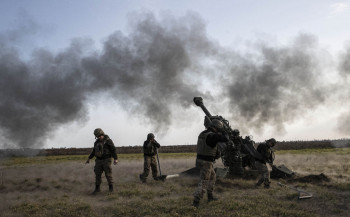Voices from the trenches: Ukrainian soldiers near Kherson share what they feel and fear
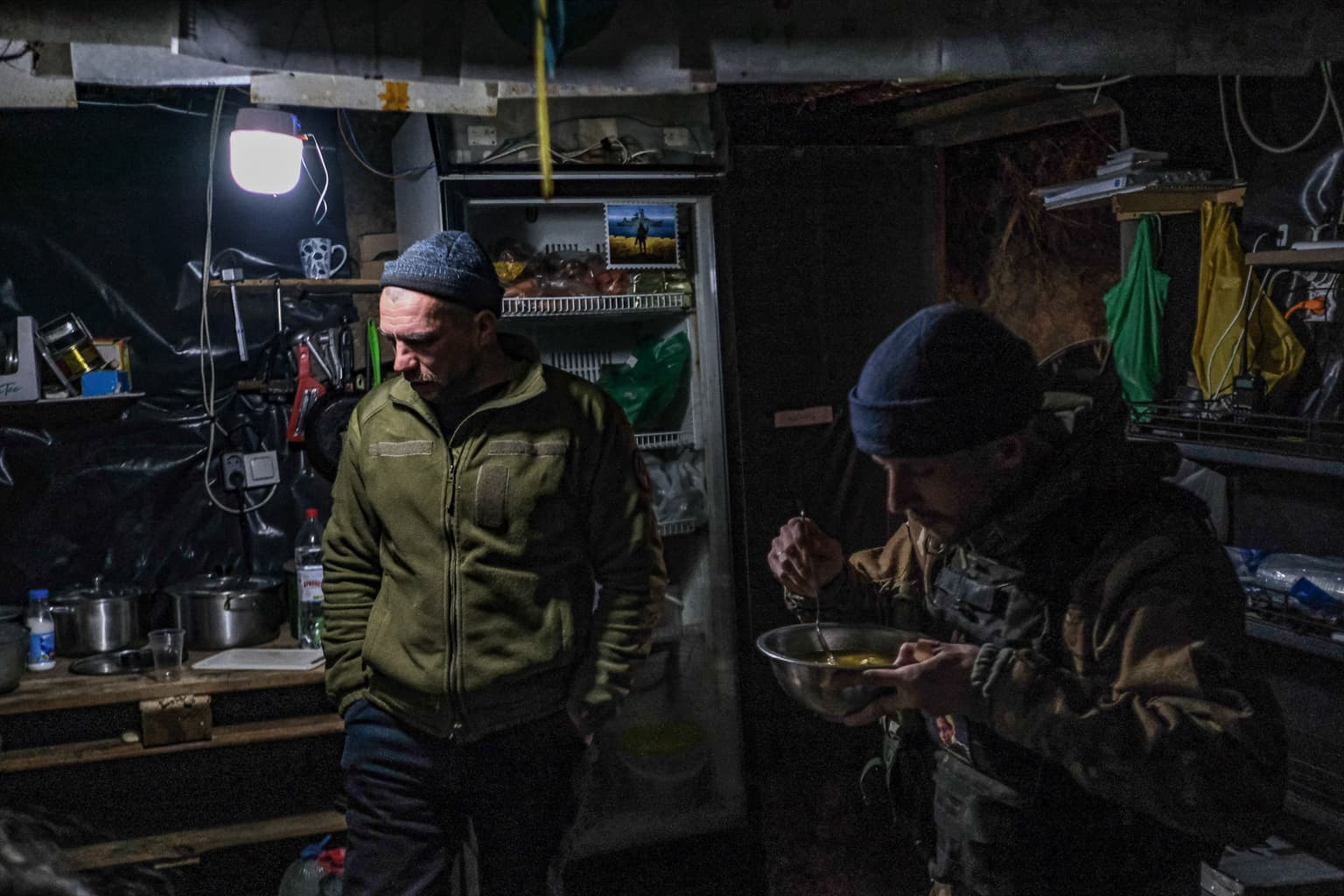
The Kyiv Independent spent some time with units of the 59th Mechanized Brigade who are defending Mykolaiv Oblast and attacking the Russian forces in neighboring Kherson.
These are testimonies of four soldiers, officers and enlisted men, about their day-to-day experiences during the battle for the South. Only first names and callsigns were used to protect the soldiers’ identities.
Mykhailo
The higher-ups and military analysts say that the intensity of Russian shelling has gone down significantly in the past few months.
To Senior Lieutenant Mykhailo and his infantrymen, who spend time on the front lines in Kherson Oblast, that may be a stretch.
"They're continuing to shoot us as they shot us before," says Mykhailo, standing at an entrenched outpost, 15 kilometers in the rear. "Shells, mortars, cluster munitions. 180 millimeters, 120 millimeters. Tanks."
The tanks are especially rough. A tank shell announces its arrival with a sudden, shattering blast that gives survivors just seconds to react before the next one. Some tanks’ firing rates can be terrifying, the soldiers say.
Indirect-fire weapons often give more of a warning, making a loud noise as they plow through the air. Some Russian artillery rounds and mortars fail to explode, bouncing harmlessly along the ground. “If only all of them were duds,” Mykhailo says.
“What do we feel?” he muses over the question. “We pray, each of us sitting in the trench, thinking their own thoughts.”
“We have wounded, shell-shocked, and unfortunately, 200s,” he says, the numerical code for fatalities in this part of the world. “Here, people are fighting for their land, with their own strength, trying to drive out the enemy.”
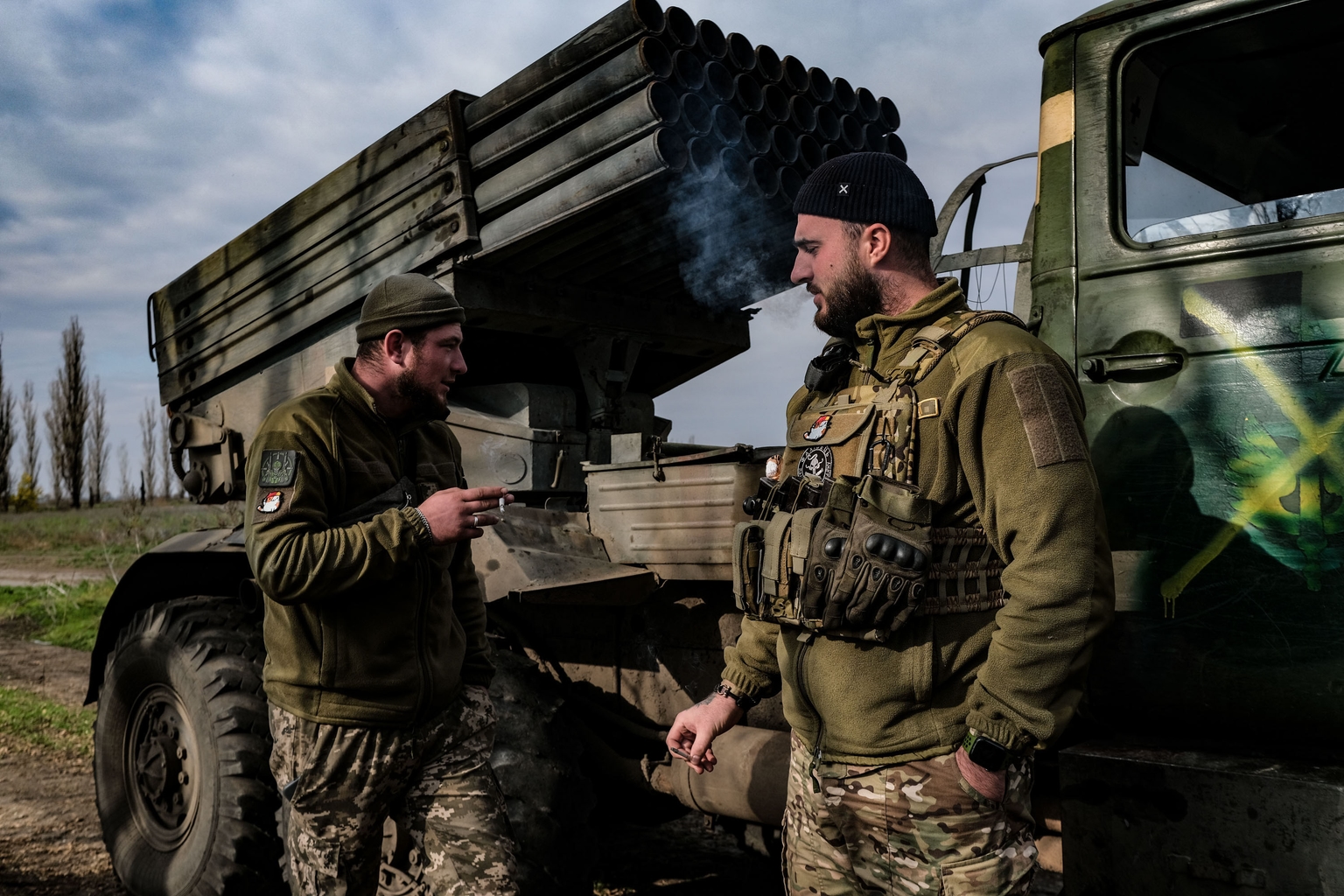
Raven
“We just feel like we’re at work,” says Voron — Raven in English — who commands a Grad multiple rocket launcher. “We get our job done, it’s all very mundane. There’s nothing supernatural about it.”
His unit is one of the instruments of Ukraine’s strategy to strike vulnerable Russian positions with rockets and artillery. The Soviet-era vehicle resembles a heavy truck with a rectangular cluster of 40 tubes on the back, able to lob rockets up to 20 kilometers away.
Ukraine does not produce its own Grad munitions and existing stockpiles have to be rationed, Raven says. “We can’t throw ammunition left and right, like we did at the start.”
Raven’s detached workmanlike attitude was developed over months of heavy fighting in southern Ukraine.
"The beginning was the hardest — February, March, April. We didn't even know who was shooting at whom. Disinformation, a lack of concrete borders,” he recollects. “But now we know where the gray zone is and it's a lot easier."
Still, no one can get too relaxed. Russian artillery and rockets can come at any moment.
“We’re doing everything in our power to defeat this enemy,” says Raven. “We’ll fight back for as long as we have the strength, we will hit them as hard as we can for as long as we can so that our children and grandchildren can live calmly and peacefully.”
“We will not allow what our grandfathers allowed to come to pass, when they let us be subjugated under Soviet rule.”
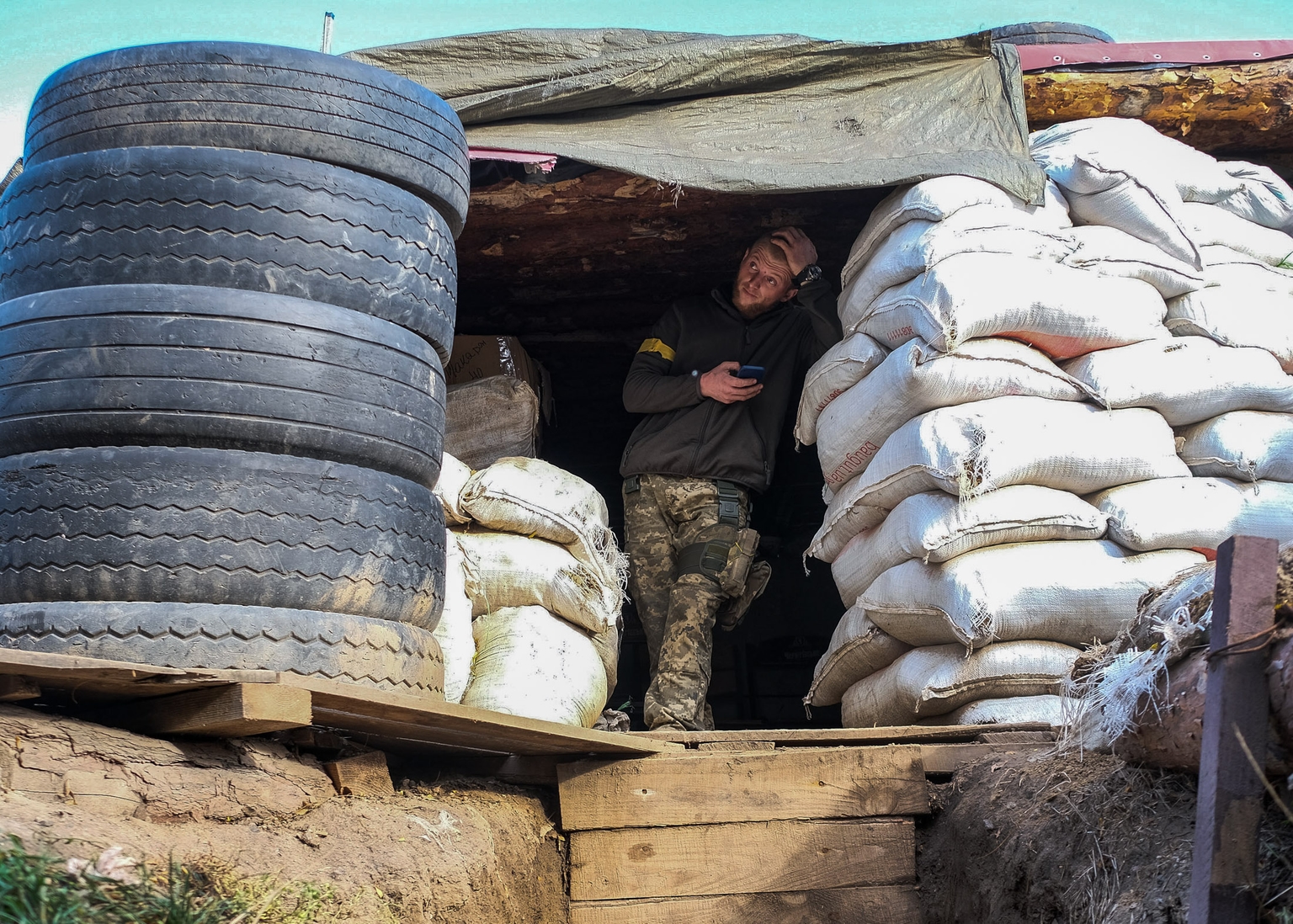
Sheriff
“What can I say? Our boys are out there — special ops, recon. They’re holding up well,” says Sheriff, looking up the road leading to Kherson from Mykolaiv. The sign delineating the regional border can be seen peeking over the next hill. “They’re getting some pressure, moving forward little by little.”
Sheriff’s checkpoint sits on the edge of the village of Shevchenkove, named after Ukraine’s most celebrated poet Taras Shevchenko. The village is mostly abandoned, with only a handful of elderly Ukrainians still clinging to life here, subsisting on humanitarian aid from Mykolaiv. The villages deeper in no man’s land have been completely obliterated by the shelling.
Sheriff spent the past two months defending this position. His days alternate between relative calm and heavy incoming barrages. Since Shevchenkove was retaken in spring, the Russians tried to drive several offensives into the area but were repelled each time.
“They’re simply thrown in here like meat,” he says. “They’re not qualified to be in hot spots for a long time.”
For the defenders, it can be just as harrowing.
“A few months ago, we had 36 incoming (shells) in two hours,” he says. “It had never been that hot before.” The Russian tank blasting their positions tore up Ukrainian fortifications, exposing the trenches underneath.
“It was scary. To whoever says it’s not scary — it’s very scary. You begin to understand how important your life is to you,” he says. “On the other hand… you understand that it’s like that for everyone. You’re not alone.”
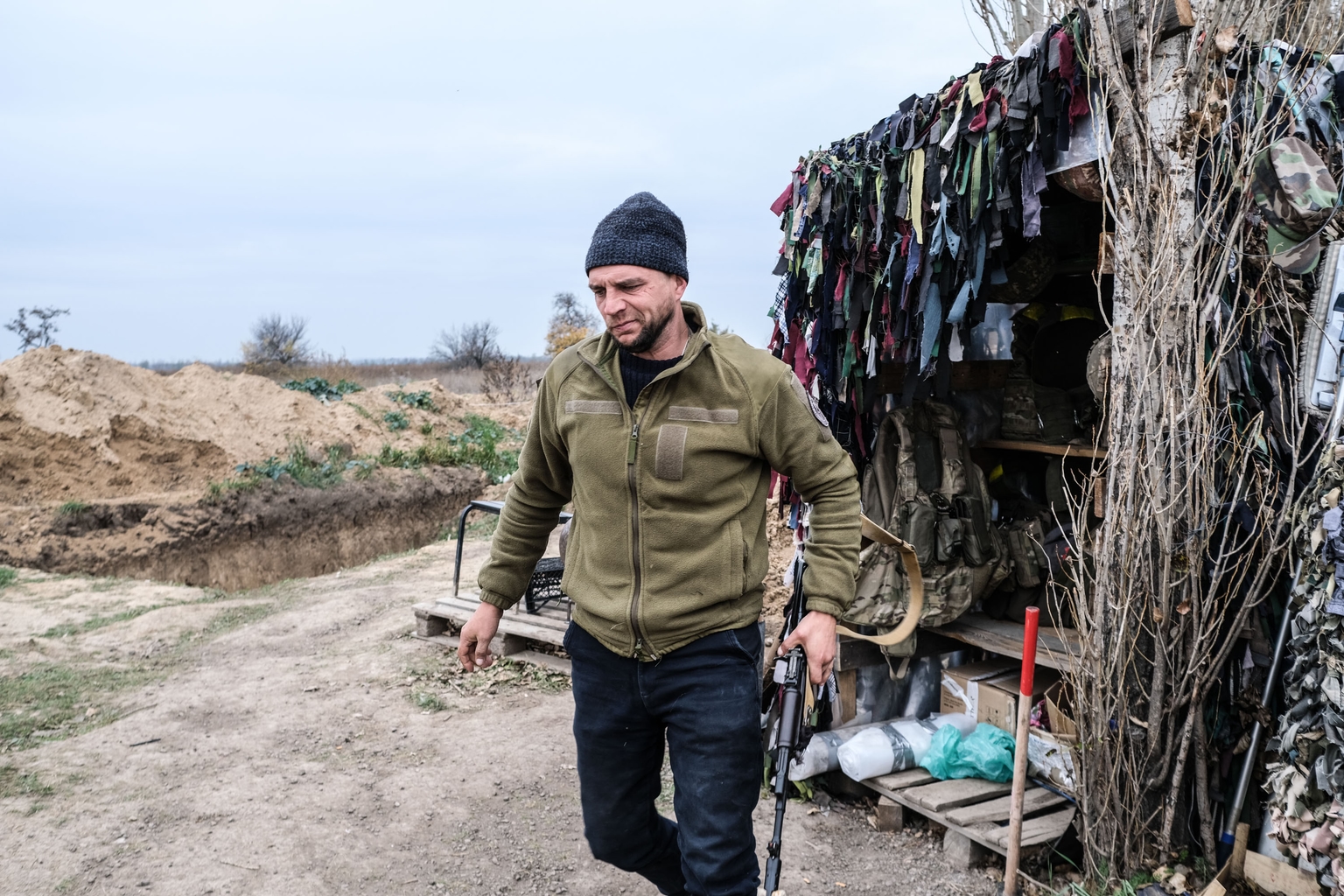
Volodymyr
“Want some pea soup?” Volodymyr asks in the makeshift underground trench kitchen. He doesn't take no for an answer, pouring a bowl, cutting off a hunk of bread and pouring a plastic cup full of apple and grape juice.
The space around the small table is packed with shelves, kitchen supplies, military equipment, a stove and a refrigerator. What open wall space remains is covered in drawings contributed by the children of Zhytomyr Oblast, 400 kilometers up north.
The soup is incredible. Volodymyr looks pleased to hear it. But when asked for the recipe, he looks just as pleased to refuse to give it.
As the subject returns to the war, his smile fades and his expression changes. He sinks into thought.
“When you have to bury one of the boys, someone you saw alive just a few days ago, that’s the scariest.”
“Not being wounded. Not being killed, because you wouldn’t know what’s going on,” he continues. “But when you have to bury a friend, that’s the scariest.”
“I’m talking about Pasha,” he says at length.
Pasha was ripped away from him by a Russian attack two weeks ago. The two had completed training together. Pasha was beloved by the unit but he had a melancholy to him. Days before he met his fate, he said “I’m not going to be around for very long.”
“When you go through the whole circle with someone…” Volodymyr trails off.
His conclusion, “that’s the scariest,” goes unsaid.
____________________
Note from the author:
Hi, this is Igor Kossov, I hope you enjoyed reading my article.
I consider it a privilege to keep you informed about one of this century's greatest tragedies, Russia's ongoing invasion of Ukraine. With the help of my colleagues, I will continue to bring you in-depth insights into Ukraine's war effort, its international impacts, and the economic, social, and human cost of this war. But I cannot do it without your help. To support independent Ukrainian journalists, please consider becoming our patron. Thank you very much.

